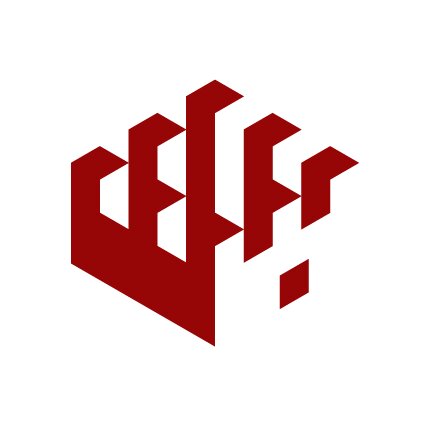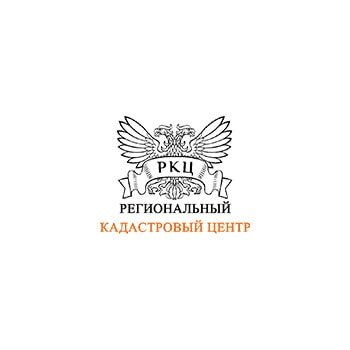Best International Trade Law Lawyers in Chelyabinsk
Share your needs with us, get contacted by law firms.
Free. Takes 2 min.
List of the best lawyers in Chelyabinsk, Russia
About International Trade Law in Chelyabinsk, Russia
International Trade Law in Chelyabinsk, Russia, encompasses the set of rules, regulations, and practices that govern the exchange of goods and services across the Russian border, particularly as they pertain to local businesses and foreign entities operating in the Chelyabinsk region. This branch of law involves matters such as customs procedures, import and export controls, tariffs, licensing, dispute resolution, and adherence to international agreements to which Russia is a party. It is influenced by both domestic Russian legislation and international obligations, including those under the Eurasian Economic Union and the World Trade Organization, which Russia has joined. Given Chelyabinsk's role as an industrial and logistical hub in the Ural region, international trade is a significant part of the local economy, making compliance with trade laws a key consideration for businesses.
Why You May Need a Lawyer
Engaging in international trade activities can be complex, especially for individuals or businesses unfamiliar with Russian and international regulations. Here are some common scenarios where seeking help from a lawyer experienced in International Trade Law can be critical:
- You are planning to import or export goods and need guidance on customs clearance, required documents, and tariffs.
- Your business is facing contractual disputes with a foreign partner or supplier.
- You need to ensure compliance with Russian sanctions or restrictions involving certain countries, goods, or technologies.
- Your company requires guidance on trade finance methods, such as letters of credit or payment guarantees.
- You are subject to an investigation or penalty by customs or trade authorities for alleged violations.
- You want to resolve issues related to intellectual property in cross-border transactions.
- You are expanding your operations internationally and must understand applicable licensing or registration requirements.
- You are dealing with anti-dumping or countervailing duty proceedings.
Local Laws Overview
International Trade Law in Chelyabinsk is governed by a combination of federal laws, international treaties, and local legislative acts. Key aspects include:
- Customs Code of the Russian Federation - Regulates customs procedures, duties, classification of goods, and border inspections.
- Eurasian Economic Union (EAEU) Regulations - Sets common rules for trade among member states, including Russia, affecting imports and exports.
- Sanctions and Export Controls - Russia maintains lists of sanctioned goods, countries, and restricted dual-use technologies. Traders must ensure full compliance.
- Incoterms and International Agreements - Commonly used in contracts to clarify responsibilities in shipping, risk, and insurance.
- Licensing and Certification Requirements - Certain goods, especially in the pharmaceutical, technology, or defense sectors, require special licenses.
- Customs Valuation - The basis for assessing duties and taxes may differ from international standards; accurate declaration is essential.
- Dispute Resolution - Disputes can be addressed in Russian courts, international arbitration centers, or through mediation depending on the contract terms.
Frequently Asked Questions
What documents do I need to export goods from Chelyabinsk?
Exports typically require an export declaration, commercial invoice, packing list, customs value declaration, and any necessary licenses or certificates depending on the goods.
Are there restrictions on what can be imported or exported from Chelyabinsk?
Yes, Russia restricts or bans the import and export of specific goods such as certain technologies, arms, dual-use items, and others due to international obligations or national security concerns.
How are customs duties calculated in Russia?
Customs duties are generally based on the customs value of goods, which is determined according to Russian regulations that may differ from international methods. Duty rates depend on the specific product classification.
Who can represent my company at Chelyabinsk customs?
Companies can be represented by an employee with customs clearance powers or by a licensed customs representative (broker) authorized to handle customs procedures on your behalf.
What are the penalties for violating trade laws in Russia?
Penalties can range from administrative fines and confiscation of goods to criminal liability in serious cases, such as smuggling or fraud.
Do I need a special license to trade with foreign companies?
While many goods may be traded freely, certain items require export or import licenses. This especially applies to pharmaceuticals, technology, food products, and items subject to sanctions.
How are trade disputes typically resolved in Chelyabinsk?
Disputes can be resolved through negotiation, Russian commercial courts, or international arbitration if stipulated in the contract. Many companies prefer arbitration for cross-border disputes.
What is the role of Incoterms in Russian trade contracts?
Incoterms define the responsibilities and risks between buyer and seller in an international transaction and are widely used in Russian export-import contracts to ensure clarity and avoid misunderstandings.
How do Russian sanctions affect international trade?
Russian sanctions may prohibit or restrict business with certain countries, companies, or individuals, as well as specific goods or technologies. Non-compliance can lead to significant penalties.
Can foreign companies open a branch or subsidiary in Chelyabinsk for trading purposes?
Yes, foreign businesses can register a branch, representative office, or subsidiary in Chelyabinsk, but must comply with Russian corporate, tax, and regulatory requirements.
Additional Resources
People seeking more information or assistance with International Trade Law in Chelyabinsk can refer to the following organizations and bodies:
- Chelyabinsk Customs Office - Provides guidance on local customs procedures and requirements.
- Ministry of Economic Development of the Russian Federation - Issues trade policy guidelines, sanctions lists, and export support programs.
- Federal Customs Service of Russia - The main authority for all customs regulations and enforcement.
- Chamber of Commerce and Industry of the Chelyabinsk Region - Offers support for export-import documentation, certification, and dispute resolution.
- Eurasian Economic Union Information Portal - Up-to-date information on legislation and requirements across member countries.
- Local law firms specializing in International Trade Law - Provide expert legal advice and representation for specific cases.
Next Steps
If you need legal assistance in International Trade Law in Chelyabinsk, consider the following steps:
- Identify your specific legal issue or question as clearly as possible.
- Gather all relevant documents, such as contracts, correspondence, invoices, and customs paperwork.
- Reach out to a local law firm with experience in International Trade Law for an initial consultation. Many firms offer such consultations free or at a reduced rate.
- Contact local trade support organizations, the Chamber of Commerce, or the customs office for general advice and documentation requirements.
- Follow up on the recommendations of your legal advisor, which may include revised contract terms, obtaining proper licenses, or representing your interests in negotiations or court.
- Stay informed about changes in trade policy, sanctions, and regulations that could affect your operations in Chelyabinsk.
Seeking professional legal guidance early can help prevent costly mistakes, ensure compliance, and protect your interests in the dynamic field of international trade.
Lawzana helps you find the best lawyers and law firms in Chelyabinsk through a curated and pre-screened list of qualified legal professionals. Our platform offers rankings and detailed profiles of attorneys and law firms, allowing you to compare based on practice areas, including International Trade Law, experience, and client feedback.
Each profile includes a description of the firm's areas of practice, client reviews, team members and partners, year of establishment, spoken languages, office locations, contact information, social media presence, and any published articles or resources. Most firms on our platform speak English and are experienced in both local and international legal matters.
Get a quote from top-rated law firms in Chelyabinsk, Russia — quickly, securely, and without unnecessary hassle.
Disclaimer:
The information provided on this page is for general informational purposes only and does not constitute legal advice. While we strive to ensure the accuracy and relevance of the content, legal information may change over time, and interpretations of the law can vary. You should always consult with a qualified legal professional for advice specific to your situation.
We disclaim all liability for actions taken or not taken based on the content of this page. If you believe any information is incorrect or outdated, please contact us, and we will review and update it where appropriate.











